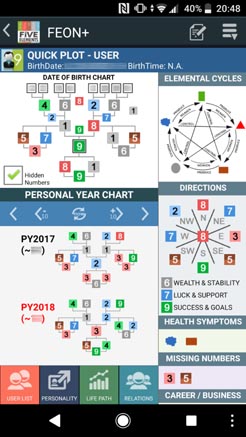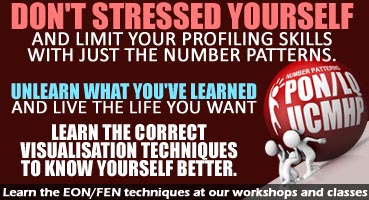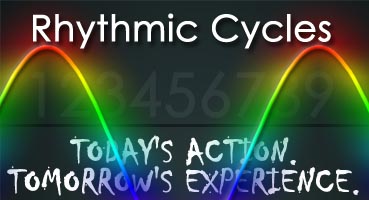Smart Genes: Book-Smart or Street-Smart Traits?
Caroline bought my EON book “Elements of Numbers: Fast and Easy Character Profiling” some time back, and loved reading it. Around two weeks ago, she installed and registered the FEON+ software on her Android smartphone. In her recent email, she wrote, “Really love your book and actually, I also learned other methods of profiling and ‘reading’ (like FengShui and Chinese metaphysics). And if you don’t mind, I got one question about my boy who’s having his PSLE exam this year. Can you please help to “see” his will and brain… to face this exam and health?”
 It was an interesting discovery that I made many years ago about the smart genes. I’m glad I’d formulated a useful and practical way to identify the book-smart and street-smart traits in a person’s EON chart. And I’m happy with the positive feedback from EON/FEN students on its easy recognition and functional applications. And most significantly, I’m thankful with the favourable comments made by readers (supporters) of my EON book and visitors (yes, you’re my supporters as well) to this site, on the brief analysis I made regarding the smart genes present in their children’s chart.
It was an interesting discovery that I made many years ago about the smart genes. I’m glad I’d formulated a useful and practical way to identify the book-smart and street-smart traits in a person’s EON chart. And I’m happy with the positive feedback from EON/FEN students on its easy recognition and functional applications. And most significantly, I’m thankful with the favourable comments made by readers (supporters) of my EON book and visitors (yes, you’re my supporters as well) to this site, on the brief analysis I made regarding the smart genes present in their children’s chart.
I replied to Caroline, “He has both the street-smart and book-smart traits. Nonetheless, the book-smart genes – while it’s useful for exams – need him to act. Don’t push him as he could rebel. Let him have his style of learning. Best to guide and mentor him, not to teach (discipline) and insist (using your way of learning). Allow him to expose his resourcefulness like finding out the whys and how’s.”
 While it is easy to identify the smart genes, it is significant to know where the smart genes are located, and be conscious of its strengths and weaknesses. It is also important to be consciously aware of the potential influence on family upbringing – the approach parents handle their child’s learning style. These could influence and make an impact – positive or negative ones depending on educational approach (discipline, nurture, or heck-care attitude) – on the child’s willingness to optimise their smart genes to pass the examination. Recognising and applying the ego-states of the Transactional Analysis (TA) method is handy and useful, to communicate effectively and bring out the kid’s potentials to the maximum.
While it is easy to identify the smart genes, it is significant to know where the smart genes are located, and be conscious of its strengths and weaknesses. It is also important to be consciously aware of the potential influence on family upbringing – the approach parents handle their child’s learning style. These could influence and make an impact – positive or negative ones depending on educational approach (discipline, nurture, or heck-care attitude) – on the child’s willingness to optimise their smart genes to pass the examination. Recognising and applying the ego-states of the Transactional Analysis (TA) method is handy and useful, to communicate effectively and bring out the kid’s potentials to the maximum.
 Caroline’s son (let’s call him Brandon) could study as he has the book-smart traits or genes. The tendency signs are suggesting Brandon’s father might have adopted the authoritarian father-child approach, i.e., emphasise the importance of foresight planning – to study hard, to hold a respectable and well-paid job, and have a successful career. On the other hand, Caroline could have embraced the softer, but nagging (at times, vocal and long-winded too) approach of frequently sharing her views about having a good educational foundation, and pressuring her son to study hard, and not play hard.
Caroline’s son (let’s call him Brandon) could study as he has the book-smart traits or genes. The tendency signs are suggesting Brandon’s father might have adopted the authoritarian father-child approach, i.e., emphasise the importance of foresight planning – to study hard, to hold a respectable and well-paid job, and have a successful career. On the other hand, Caroline could have embraced the softer, but nagging (at times, vocal and long-winded too) approach of frequently sharing her views about having a good educational foundation, and pressuring her son to study hard, and not play hard.
Today’s millennial kids are generally smarter and more resourceful than their parents. With easy Internet access and an abundance of information that’s retrievable almost instantly, it is astonishing to see how the kids could study, learn, and understand concepts by maximising their multitasking abilities.
In some instances, some smart and academically-inclined kids with strong book-smart traits intentionally failed their exams because of their rebellious and attention-seeking habits, or to spite their parents. However, when a kid knows the importance of the fact that his own future lies in his own hands, and not on his parents, he could widen his capacity to learn on his own (time and pace) and build the knowledge to pass the exams. In some ways, he could adopt the “study smart, play hard” approach of allocating time to study and playing.
 As noted in my reply email to Caroline, it’d be beneficial for her and her husband not to force their son to study hard for his PSLE (Primary School Leaving Examination). Rather, she should adopt a more nurturing and mentoring way to bring out the street-smart traits present in Brandon’s EON chart. What this means is that while Brandon has strong book-smart traits and the ability to study, it entirely depends on whether he wants to study or not, especially when the home environment is not conducive and/or parents not supportive enough.
As noted in my reply email to Caroline, it’d be beneficial for her and her husband not to force their son to study hard for his PSLE (Primary School Leaving Examination). Rather, she should adopt a more nurturing and mentoring way to bring out the street-smart traits present in Brandon’s EON chart. What this means is that while Brandon has strong book-smart traits and the ability to study, it entirely depends on whether he wants to study or not, especially when the home environment is not conducive and/or parents not supportive enough.
Brandon has the perfectionist trait, and probably anything below certain marks (like 96/100) might not be good enough for him. In short, Brandon could also be self-imposing undue pressure on himself, and these could create unmanageable stress, tempers, emotions, distractions, carelessness, losing focus, worries, and mood swings – resulting in rebellious or sensitive childlike characteristics. He needs to stay calm and manage his emotions and tempers. Caroline and her husband should show role-model examples on why it is OK not to score full marks as long as Brandon has really done his best. What’s important is not about producing the excellent exam results, but the significance of building the character strength, resolute, and the child’s life purpose.
 While Brandon has the street-smart traits, his resourcefulness does not “automatically” gets activated every time. He needs some encouragement and positive affirmations to open the street-smart door wider to admit him to increase his resourceful capacity to complement his book-smart abilities. In short, Caroline and her husband should engage in more mentoring (like communicating or discussing with their child in the adult-adult ego-state in TA) approach to bring out the best of their son’s creative abilities, aptitude, and attitude through understanding, conceptualising and experiential learning. This way, he could use his innate strengths and resourcefulness to prepare well for his PSLE exams, in a positive and responsible manner.
While Brandon has the street-smart traits, his resourcefulness does not “automatically” gets activated every time. He needs some encouragement and positive affirmations to open the street-smart door wider to admit him to increase his resourceful capacity to complement his book-smart abilities. In short, Caroline and her husband should engage in more mentoring (like communicating or discussing with their child in the adult-adult ego-state in TA) approach to bring out the best of their son’s creative abilities, aptitude, and attitude through understanding, conceptualising and experiential learning. This way, he could use his innate strengths and resourcefulness to prepare well for his PSLE exams, in a positive and responsible manner.
Oh, one more thing… when the favourable stars are present in the year’s chart, like it is currently in Brandon’s PY2018 Chart, the beneficial energies are manifesting positively and strongly. If all goes well, Brandon could pass his PSLE with above-norm or higher than expected results, once he has improved his studying, attentiveness, and learning attitudes; and his parents adjusting their parental upbringing styles.
Regards, Ron WZ Sun















